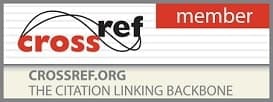- Printed Journal
- Indexed Journal
- Refereed Journal
- Peer Reviewed Journal
P-ISSN: 2394-1685 | E-ISSN: 2394-1693 | CODEN: IJPEJB
Impact Factor (RJIF): 5.38
2017, Vol. 4, Issue 4, Part G
The prospective effects of exercise sports on the body’s immune functions
Author(s): Thaer Jabbar Ashour, Cherifi Ali and Hala Mikhael Youssef
Abstract:
Strenuous or intense exercise has severe and continual influences on a person’s systemic immunity. When athletes and non-athletes are resting, their respective systems are more alike than dissimilar except the activities of the NK cell which have a tendency to be elevated in the athletes. Many constituents of the immune system display adverse changes after long-drawn-out heavy exertion. These changes occur in several sections of the immune system and the body (like the skin, lungs, blood, muscles and the mucosal tissues of the upper respiratory tract). Although it is still subject to interpretation, most exercise immunologists are of the opinion that it is during the said “open window†of impaired immunity (whereby the duration may vary from 3 to 72 hours, contingent on the immune measure) during which viruses and bacteria may possibly gain a foothold, thereby resulting in a higher risk of subclinical and clinical infection. The risk of infection can become greater than before when the other immune-related factors are present, such as being exposed to novel pathogens when travelling, not having enough sleep, undergoing severe mental stress, suffering from weight loss or malnourished.
Pages: 417-423 | 1139 Views 104 Downloads
Download Full Article: Click Here
How to cite this article:
Thaer Jabbar Ashour, Cherifi Ali, Hala Mikhael Youssef. The prospective effects of exercise sports on the body’s immune functions. Int J Phys Educ Sports Health 2017;4(4):417-423.








 Research Journals
Research Journals